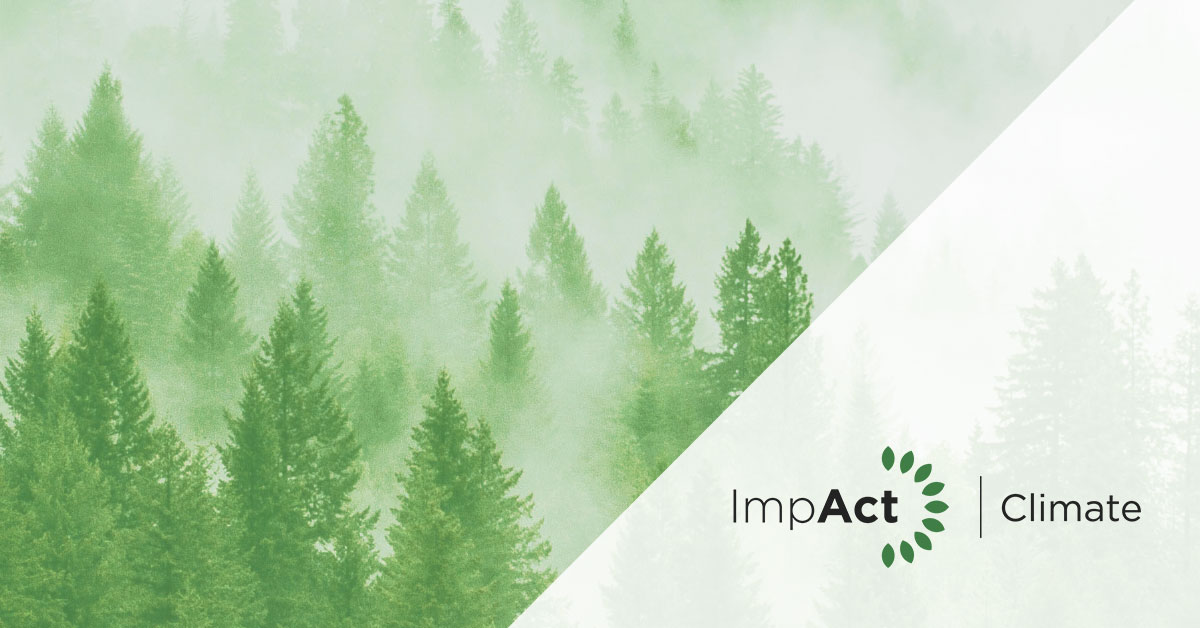Brought to you by CICan, SDSN Canada, and the Sustainability Hub at UBC, SDG Week Canada is a chance to showcase and accelerate the SDGs on college, institute, and university campuses in a coordinated, collaborative way. Join over 25 CICan members in offering your own workshops, panels, and other interactive programming to increase awareness of and engagement with the 17 SDGs on campuses. March 6-10.
The Sustainable Development Goals give us a model for collaboration to create positive change. They are a global call to action for countries, communities and campuses to work together to solve issues that affect us all – like poverty, hunger, inequality, and climate change – while planning for a long-term equitable, peaceful, and prosperous future. Everyone has a role to play in making progress towards the goals.
At ImpAct-Climate, we have the privilege of working closely with colleges and institutes across the country that are committed to the SDGs. Most recently, we’ve been working with 10 colleges and institutes to turn their campuses into living labs that demonstrate how we can maximize the impact of Canada’s largest postsecondary network. Keep scrolling for a funding opportunity!
- At Norquest College, the Green Café team uses rescued or left over food ingredients to deliver delicious, chef-prepared meals to students free-of-charge while raising awareness about sustainable consumption and production patterns. (SDGs 2, 3 & 12)
- At Canadore College, the team is using climate resistant sustainable technologies (solar power) to displace the use of fossil fuels to help create food sovereignty for rural and Indigenous communities. (SDGs 2, 3, 7, 9, 11, 12 & 13)
- At Conestoga College, the Bloom Café demonstrates ways to lower our impact on the environment by eliminating single use packaging for take-away items, reducing food and solid waste from restaurant operations, and understanding the GHG impact of the ingredients used in each dish. (SDGs 9, 12 & 13)
- At Georgian College, the Climate Action Lab and the departments of Hospitality, Tourism and Recreation are reducing food-related emissions through sustainable practices such as localizing ingredients, reducing food waste, composting, urban farming, reducing, and recycling plastics. They are also working with students and community members to create an emissions dashboard and carbon counter to track, expand, and scale climate action initiatives in the region. (SDGs 2, 3, 4, 11, 12 & 13)
- At Collège de Bois-de-Boulogne, the climate action laboratory organizes GHG emissions reduction activities for students and community members. The team is also actively engaging the community in co-designing an aquaponic infrastructure that could be installed on their campus to provide fresh, healthy, and readily available food all year. (SDGs 2, 3, 4, 9, 11, 13 & 17)
- At Cambrian College, the Climate Action Lab team uses their year-round, four-season Indigenous learning space to teach individuals about sustainability, as well as many other topics, through an Indigenous lens of ways of knowing, being, and doing. (SDGs 4, 10, 11 & 16)
- At Dawson College, the climate action team is working to offset transportation-related greenhouse gas emissions from physical education courses by planting a living carbon offset in the form of a raised wetland, thanks to the efforts of 25 students who built the project by hand. (SDGs 6, 9, 11, 13 & 15)
- At College of the Rockies, the team is reducing greenhouse gas emissions on campus by diverting organics from the landfill to their campus composter and by growing leafy greens on campus to replace those that travel thousands of kilometres from farm to their campus culinary program. (SDGs 2, 3, 9, 11, 12 & 13)
- At Vanier College, the Climate Action Laboratory raises awareness about the benefits of replacing traditional campus lawn care with sustainable low-carbon maintenance approaches. The Lab is working with local elementary schools to implement strategies to promote successional growth and to convert lawns to food gardens for local consumption. (SDGs 1, 2, 3, 4, 11, 12 & 13)
- At Mohawk College, the team is raising awareness about greenhouse gases and energy with print and digital signage in high traffic areas on campus to help people understand their contributions to climate change and to support campus-wide decision making by analyzing detailed energy data. (SDGs 9, 11, 12 & 13)
Now it’s your turn! Transform your campus into a living lab (Round II).
We’ve already funded 10 successful projects and are looking for 10 more! Join a network that demonstrates ways to reduce greenhouse gas emissions in 5 areas: Indigenous approaches to sustainability, waste, transportation, buildings and land management, and food. Deadline: March 3.

